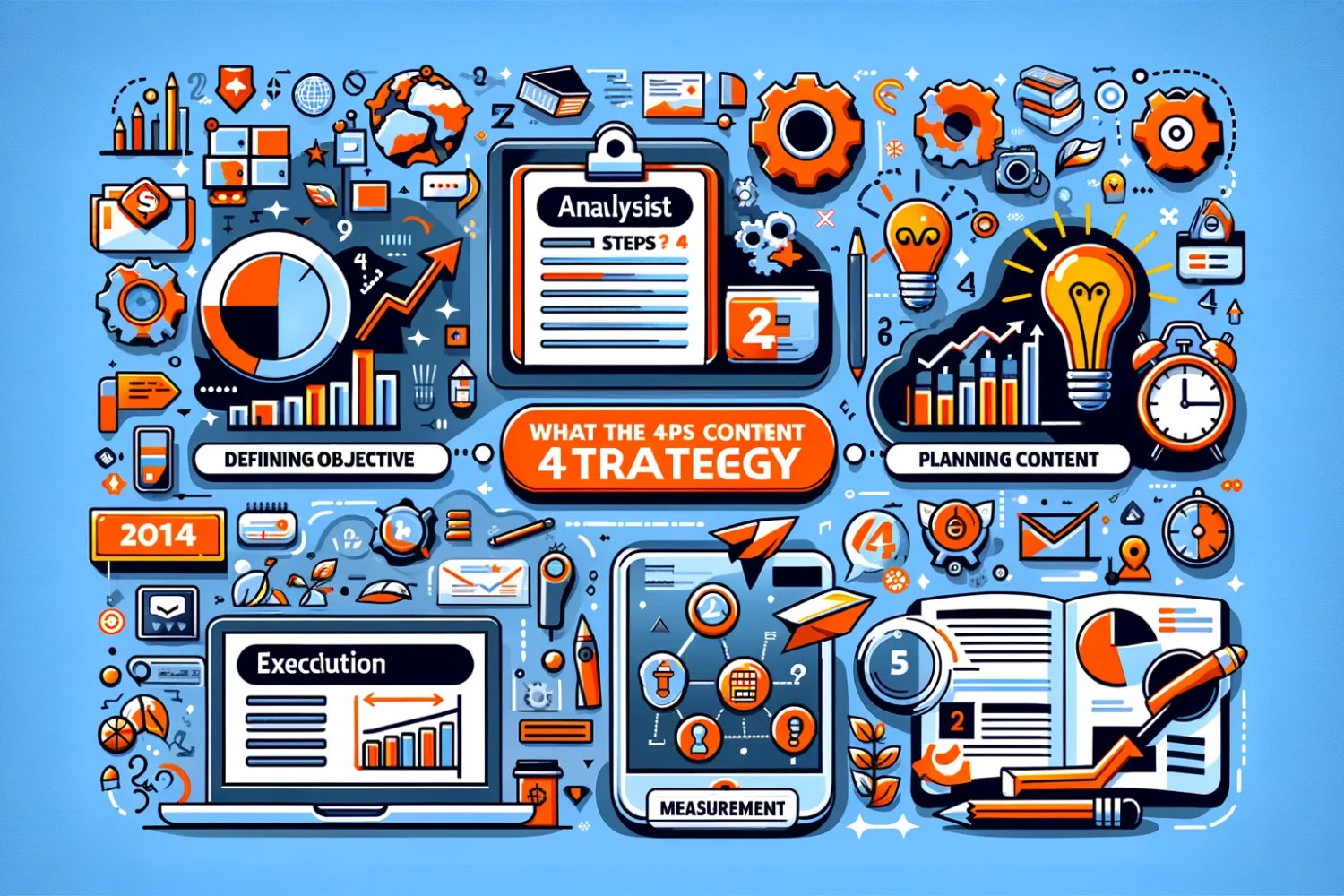A good content strategy effectively aligns with a business’s goals and meets the needs of its audience. It should be comprehensive, covering all stages from planning and creation to delivery and governance. Key characteristics include being audience-focused, driven by specific objectives, and data-informed, allowing for adaptive measures based on engagement and performance analytics. A successful content strategy also ensures that the content is consistent in style, tone, and quality across all platforms, enhancing the overall brand experience and maximizing the return on investment in content creation.
What Should a Content Strategy Include?
A good content strategy should include the following elements:
- Defining Goals: Clearly define the goals of your content strategy, such as increasing brand awareness, generating leads, converting users, attracting past customers, improving search ranking results, or something else altogether. This will help you determine if a content strategy is the best way to achieve your goals.
- Researching Your Audience: Understand who your target audience is, what types of sites they visit, which content they engage with, and which social media platforms they share content on. This will help you create content that resonates with your audience and meets their needs.
- Setting and Reaching Goals: A content strategy should help you set and reach marketing goals by defining priorities, planning work, and ensuring that all marketing efforts are goal-driven. With a documented content strategy, you can ensure that every bit of effort put in by your team translates into tangible results.
- Tracking Progress: A content strategy should outline the metrics you should track and analyze to constantly determine whether or not your content marketing initiatives are effective. This will help you identify areas for improvement and optimize your strategy over time.
- Identifying New Opportunities: A content strategy should help you identify new content creation opportunities, such as hot-button news topics, that help you reach more of your target audience.
- Cutting Costs: A content strategy should help you define how much money should be spent per project, how it should be spent, and how to find ways to cut costs if needed.
- Optimizing Your Marketing Team: A content strategy should help define roles and responsibilities for your marketing team, making them more accountable and efficient in their content creation and promotion efforts.
4 Steps to Getting Your Content Strategy off the Ground
To effectively launch a content strategy, you can follow these four foundational steps:
- Build Your Content Strategy
The first step is to define your business goals and metrics. What does your company need to achieve in the next 6 to 12 months? How can content marketing help you do that? Your content strategy should be aligned with these goals and push all your marketing efforts in the same direction. Next, you need to understand your target audience. Beyond demographic information and buying behavior patterns, you should have deep knowledge of their goals and pain points. This will help you create a content strategy and content plans tailored to your customers’ needs.Finally, you need to plan for content management, including content creation, editing, organizing, distributing, and promoting.
- Map Your Content Strategy
Once you have your content strategy framework in place, you need to map out your content plans. This includes creating an editorial calendar, developing buyer personas, and conducting a SWOT analysis to identify your strengths, weaknesses, opportunities, and threats.
- Launch Your Content Strategy
Now that you have a solid plan in place, it’s time to launch your content strategy. This includes creating high-quality content, optimizing it for search engines, and promoting it through various channels.
- Measure Your Content Strategy
The final step is to measure the success of your content strategy. This includes tracking key metrics such as website traffic, engagement, leads, and sales. By analyzing these metrics, you can identify what’s working and what’s not, and adjust your strategy accordingly.
what are the 4 steps of content strategy
- Audit Existing Content: Review what you currently have, assess its effectiveness, and identify gaps that new content can fill.
- Develop a Content Plan: Outline types of content, channels for distribution, and schedules. Ensure diversity in content formats to cater to different audience segments.
- Create and Curate: Produce high-quality content that engages and adds value. Also, consider curating relevant content from credible sources.
- Optimize for Search: Incorporate SEO best practices to enhance content visibility and drive organic traffic.
why you should hire digital marketing agency for your content strategy
Hiring one of the
top digital marketing agencies in Egypt for your content strategy can significantly elevate your brand’s online presence. These agencies bring a wealth of expertise and specialized skills tailored to the dynamic digital landscape of Egypt. They understand local market trends and audience behaviors, which is crucial for crafting compelling content that resonates. Additionally, these agencies employ advanced tools and analytics to refine strategies effectively and measure success, ensuring your content not only reaches but also engages your target audience, driving measurable business outcomes
FAQ
Q: How often should I revise my content strategy?
A: Regularly review and adjust your strategy quarterly or biannually, depending on your business dynamics and market trends.
Q: Can I use the same content across multiple platforms?
A: Yes, but optimize it for each platform to meet specific audience preferences and platform requirements.
Q: How do I know if my content strategy is successful?
A: Success can be measured by increased engagement, higher conversion rates, and achieving set KPIs aligned with business goals.
Takeaways
- Strategic Alignment: Ensure your content strategy closely aligns with your business objectives and audience needs, utilizing the specialized expertise of the agency.
- Consistency and Quality: Maintain a high standard of content quality and consistency to build trust and authority, with the agency’s resources enhancing your capabilities.
- Adaptability: Stay adaptable and ready to tweak your strategy based on analytics and market conditions, with the agency providing insights and flexibility.
- Measurement is Key: Regularly measure the impact of your content to understand what works and optimize accordingly, leveraging the agency’s advanced tools and technologies.
- Agency Collaboration: Partner with a digital marketing agency to amplify your efforts, leveraging their expertise for creative ideation, execution, and data-driven optimizations.

